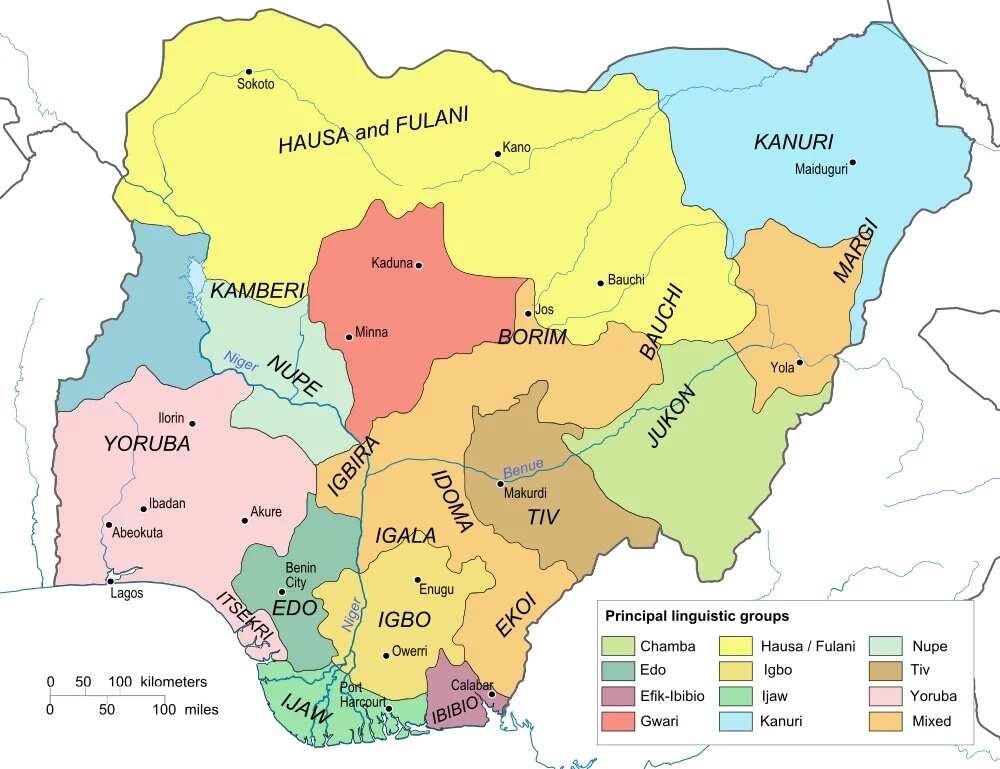Top 10 Major Tribes In Nigeria: A Cultural Journey
What makes Nigeria so unique? Its vibrant tapestry of ethnicities, a mosaic of cultures woven together, gives Nigeria a distinct identity and makes it a crucible of diverse beliefs and traditions.
Nigeria, a land of vibrant diversity, pulsates with the rhythms of hundreds of distinct tribes, each contributing to the nation's rich cultural heritage. With over 371 ethnic groups acknowledged, the sheer scale of this human tapestry is breathtaking. This intricate blend of cultures, languages, and traditions paints a vivid portrait of a nation unlike any other. This cultural richness isn't merely a point of national pride; it profoundly shapes Nigeria's social, political, and economic landscape.
| Ethnic Group | Primary Location(s) | Population (Estimate) | Key Features | Economic Activities |
|---|---|---|---|---|
| Hausa | Northern Nigeria (Bauchi, Borno, Jigawa, Kaduna, Kano, Katsina, Kebbi, Sokoto, Zamfara, etc.) | 75+ million | Predominantly Islamic, known for their elaborate traditional attire and vibrant festivals like Durbar. | Agriculture (farming, livestock rearing), trading, crafts. |
| Yoruba | Southwestern Nigeria (Lagos, Ogun, Oyo, Osun, Ondo, Ekiti, Kwara, parts of Kogi) | 40+ million | Rich oral traditions, known for their artistic prowess in sculpture, weaving, and music. A blend of traditional religions and Christianity. | Agriculture (cocoa, cassava), trading, manufacturing, arts & entertainment. |
| Igbo | Southeastern Nigeria (Abia, Anambra, Ebonyi, Enugu, Imo, parts of Delta and Rivers) | 40+ million | Known for their entrepreneurial spirit, complex masquerades, and a strong sense of community. Predominantly Christian. | Trade, commerce, manufacturing, agriculture (yam, palm oil). |
| Fulani | Widely dispersed across Nigeria, particularly in the North. | 20+ million | Traditionally nomadic pastoralists, known for their cattle herding practices. Many have settled into agricultural communities. Predominantly Islamic. | Livestock (cattle, sheep, goats), agriculture, trading. |
Reference: Encyclopdia Britannica - Nigeria: Ethnic groups
While the Hausa, Yoruba, and Igbo often dominate discussions of Nigerian ethnicity, it's crucial to acknowledge the hundreds of other groups that contribute to the nation's vibrant cultural mosaic. Groups like the Ijaw of the Niger Delta, the Tiv in the middle belt, and the Kanuri in the northeast each possess unique histories, languages, and customs that enrich Nigeria's cultural tapestry.
The Ijaw, for example, boast a history stretching back millennia in the Niger Delta region, where fishing and trade have long been central to their way of life. Their deep connection to the waterways and their intricate cultural practices make them a vital part of Nigeria's story.
Furthermore, the diversity of Nigerian tribes transcends mere demographics; it significantly impacts the country's economic landscape. The Igbo, known for their entrepreneurial spirit, have played a crucial role in trade, manufacturing, and various other industries, contributing significantly to Nigeria's economic growth.
Examining the economic contributions of various groups unveils a complex and interconnected picture. From the agricultural prowess of the Hausa and Fulani, focused on livestock and farming, to the Yoruba's involvement in cocoa production and trade, each group brings unique strengths to the table. This economic diversification is vital to Nigeria's overall prosperity.
The Fulani, traditionally nomadic pastoralists, have gradually transitioned into agricultural communities, adapting to changing circumstances while maintaining their deep connection to livestock rearing. Their resilience and adaptability underscore the dynamic nature of Nigerian ethnicities.
Nigerias ethnic diversity is far more than just a statistic; it is the lifeblood of the nation, shaping its identity and driving its progress. From the bustling markets of Lagos to the serene landscapes of the north, the influence of these diverse communities is undeniable. This intricate interplay of cultures, traditions, and languages forms the very essence of what it means to be Nigerian.
Understanding the nuances of Nigeria's ethnic landscape is essential for navigating its social, cultural, and political complexities. It allows for a deeper appreciation of the country's rich history and the dynamic forces shaping its future. As Nigeria continues to evolve on the global stage, its diverse ethnic tapestry will undoubtedly play a critical role in defining its trajectory.
This journey through Nigeria's ethnic diversity reveals a nation of remarkable complexity and resilience. It highlights the importance of recognizing and celebrating the unique contributions of each group, fostering a sense of unity amidst diversity. This is the essence of Nigeria: a nation where hundreds of distinct voices come together to create a vibrant and dynamic whole.

